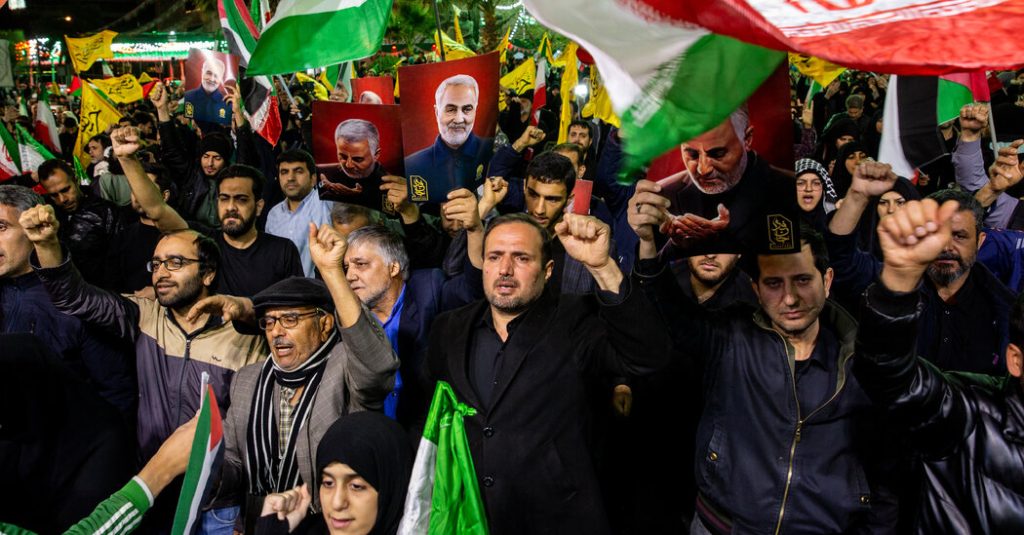Iran’s supreme leader, Ayatollah Ali Khamenei, has vowed to avenge the deaths of three commanders and four officers in Iran’s armed forces who were killed in an Israeli airstrike on the Iranian embassy compound in Damascus. The leaders were high-ranking officials in the Quds Force, responsible for Iran’s covert intelligence and military operations in Syria and Lebanon. This strike has escalated tensions between Iran and Israel, highlighting their conflicting ambitions in the region and the use of proxies by Iran to fight its battles. Khamenei has vowed to make Israel regret their actions.
Among the commanders killed was Gen. Mohammad Reza Zahedi, Iran’s top commander in the region, overseeing Iran’s proxy militias in Lebanon and Syria. General Zahedi coordinated attacks on U.S. and Israeli interests in the region, making his death a significant blow to Iran’s operations in the Middle East. The Iranian leadership views avenging his death as their moral duty, as General Zahedi had strong connections with top Iranian military and political officials, as well as Hezbollah leader Hassan Nasrallah. The two other Quds Force generals killed with General Zahedi were veterans of Middle East wars, further impacting Iran’s military operations in the region.
The loss of these commanders presents a challenge for Iran, as it disrupts years of military expertise and personal connections essential for successful operations in the Middle East. Iran may face a short-term tactical blow until they can regroup and replace the commanders. The R.G.C. leadership’s involvement in covert operations abroad has been dealt a significant blow, affecting Iran’s proxy network. However, the long-term impact on Iran’s operations in the region and its influence is expected to be manageable, according to analysts.
Iran has options for retaliating against Israel, aiming to deter future assassinations. Possible retaliation measures include launching long-range ballistic missiles into Israel, escalating attacks through proxies like Hezbollah, or pressuring the Biden administration to rein in Israel by ordering attacks from proxies in Syria and Iraq. The decisions on how to respond are being debated within Iran’s decision-making circles, with some advocating for direct missile strikes on Israel, while others argue for retaliation through proxy militias. Ultimately, Ayatollah Ali Khamenei will decide on Iran’s response in the coming days and weeks.
The impact of the strike on Iran’s military operations is significant, as Iran risks an all-out war with Israel if it chooses to retaliate directly. The loss of the high-ranking commanders has weakened Iran’s operations in the region but is expected to be more manageable from a strategic standpoint in the long term. The political calculations within Iran are multifaceted, with divisions on how to respond to the Israeli attack. The Supreme National Security Council and the Guards are deliberating on the appropriate response, with hard-liners advocating for direct retaliation and moderates pushing for a more cautious approach. Ultimately, Ayatollah Ali Khamenei’s decision will determine Iran’s next steps.


